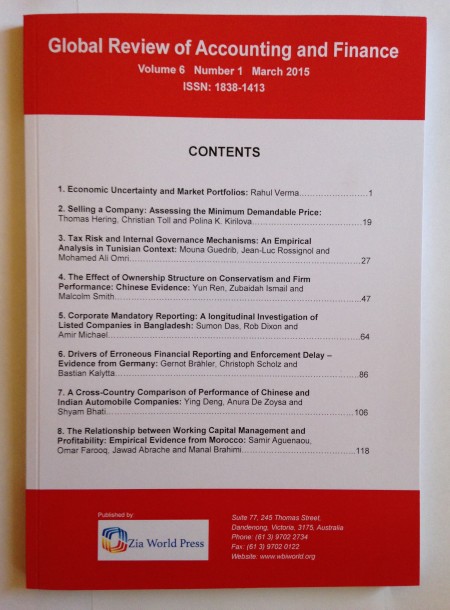Economic Uncertainty and Market Portfolios

Global Review of Accounting and Finance
Vol. 6. No. 1. , March 2015, Pages: 1 – 18Economic Uncertainty and Market Portfolios
This research attempts to uncover the following important relationships: (i) what is the intensity of the effect of innovations in economic uncertainty on the financial markets (ii) examine the duration i.e., how long does such effect lasts in the financial markets and (iii) investigate the lead-lag relationships between surprises in uncertainty and the financial market movements. It employs the time series data obtained in monthly interval during 1990-2013 on the economic uncertainty and four market portfolios: S&P 500 return, DJIA index return, value weighted return and equal weighted return. The findings of impulse response functions generated from a five variable VAR model suggest the following: (i) there are significant negative effects of uncertainty on all the four market portfolios (ii) the effects are significantly priced during the first two months and becomes insignificant thereafter; (iii) the effect is most pronounced in case of equal weighted return portfolio. Overall the findings uncover a loop wherein an unexpected increase (decrease) in economic uncertainty dampens (improves) portfolio performance causing subsequent higher (lower) uncertainty in the economic system. These findings have important implications for investment managers who aim to aim to improve their portfolio performance. Specifically, the implication is that economic uncertainties and irrational pessimistic periods are favorable time for long term investors to buy securities which have good fundamentals.Key Words: Portfolio Choice, Information and Market Efficiency, Financial Markets
JEL Codes: G11, G14, G15
